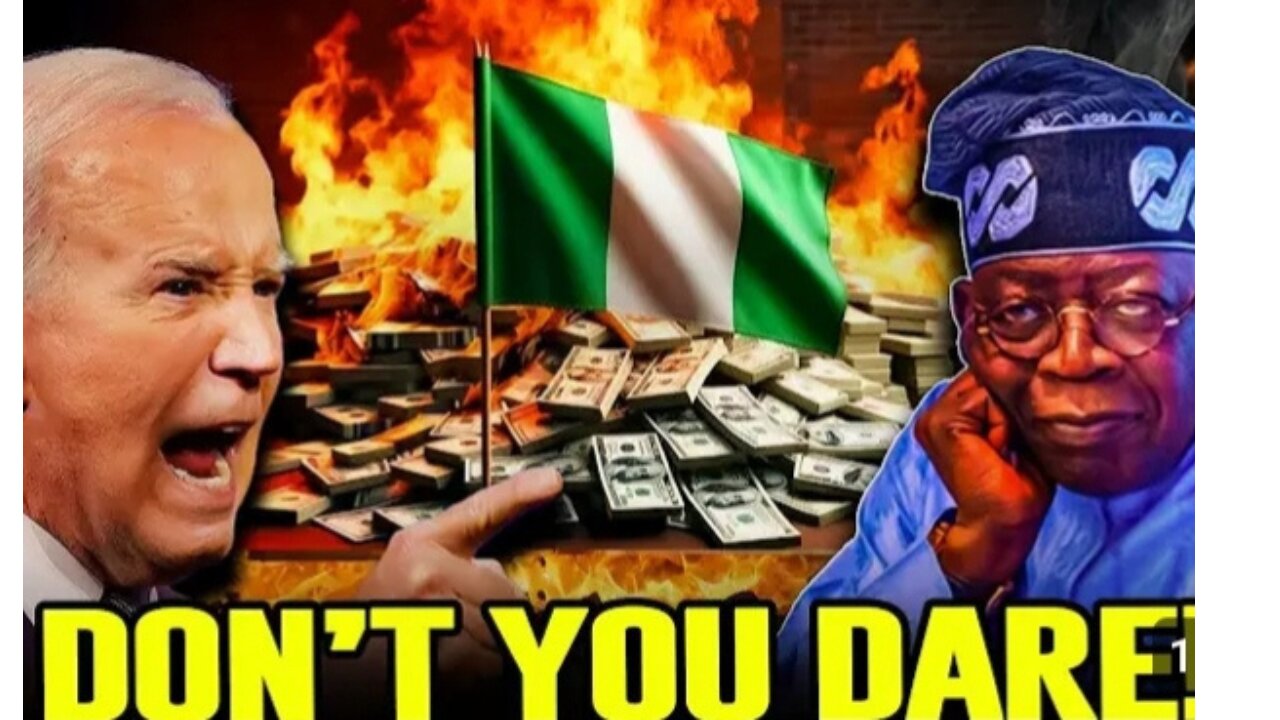Premium Only Content

Nigeria Dumps Dollar And begins Selling Crude Oil in Naira Ahead Of Brics Submit
The US Dollar has been the world’s dominant reserve currency since 1944, but can it retain this position? It seems not because the BRICS de-dollarization campaign is gaining more traction and many more countries, especially in the Global South, have jumped on its train. Recently, Nigeria, one of Africa’s strongest economies, has become the latest country to implement the BRICS de-dollarization policy by selling its crude oil in its local currency. This is fantastic but it begs the question “Why did Nigeria decide to ditch the US dollar for the Naira, given the fact that it has a fairly stable relationship with the US? What does Nigeria have to gain from selling its crude in Naira and What does this mean for Africa? Let's find out.
At the beginning of this month, the Nigerian Finance Minister, Wale Edun, confirmed in a recent post on X, that Nigeria would begin to sell crude oil to the recently established Dangote refinery and other local refineries in the country’s local currency, the naira. This move, approved in July by the Federal Executive Council, ensures that 450 thousand barrels of crude oil allocated for domestic use are sold in naira rather than dollars. You see, the Nigerian economy is largely determined by its major resource, crude oil. The sale of crude oil in dollars for decades has consistently weakened the Nigerian local currency against the dollar in the international market. This is the case with every other African country's economies. Despite the implementation of the monetary policies and practices suggested by the Western-led IMF and World Bank, the local currency has remained weak, leading to high rates of inflation and a high cost of living.
-
 9:34
9:34
Dr David Jockers
16 hours ago $10.95 earnedThe Shocking Truth About Butter
87K6 -
 9:05
9:05
Bearing
23 hours agoJaguar's Woke New Ad is SHOCKINGLY Bad 😬
27.8K101 -
 7:55
7:55
Chris From The 740
16 hours ago $9.66 earnedWill The AK Project Function - Let's Head To The Range And Find Out
21.7K9 -
 2:39
2:39
BIG NEM
12 hours agoHygiene HORROR: The "Yurt Incident"
14.4K2 -
 3:19:21
3:19:21
Price of Reason
15 hours agoHollywood Celebrities FLEE the US After Trump Win! Wicked Movie Review! Gaming Journos MAD at Elon!
104K66 -
 3:55:45
3:55:45
Alex Zedra
10 hours agoLIVE! Last Map on The Escape: SCARY GAME.
88.3K3 -
 1:14:07
1:14:07
Glenn Greenwald
15 hours agoComedian Dave Smith On Trump's Picks, Israel, Ukraine, and More | SYSTEM UPDATE #370
184K270 -
 1:09:07
1:09:07
Donald Trump Jr.
18 hours agoBreaking News on Latest Cabinet Picks, Plus Behind the Scenes at SpaceX & Darren Beattie Joins | TRIGGERED Ep.193
223K775 -
 1:42:43
1:42:43
Roseanne Barr
13 hours ago $65.93 earnedGod Won, F*ck You | The Roseanne Barr Podcast #75
101K212 -
 2:08:38
2:08:38
Slightly Offensive
15 hours ago $43.01 earnedDEEP STATE WINS?! Matt Gaetz OUSTED as AG & Russia ESCALATES War | Guest: The Lectern Guy
97.3K62